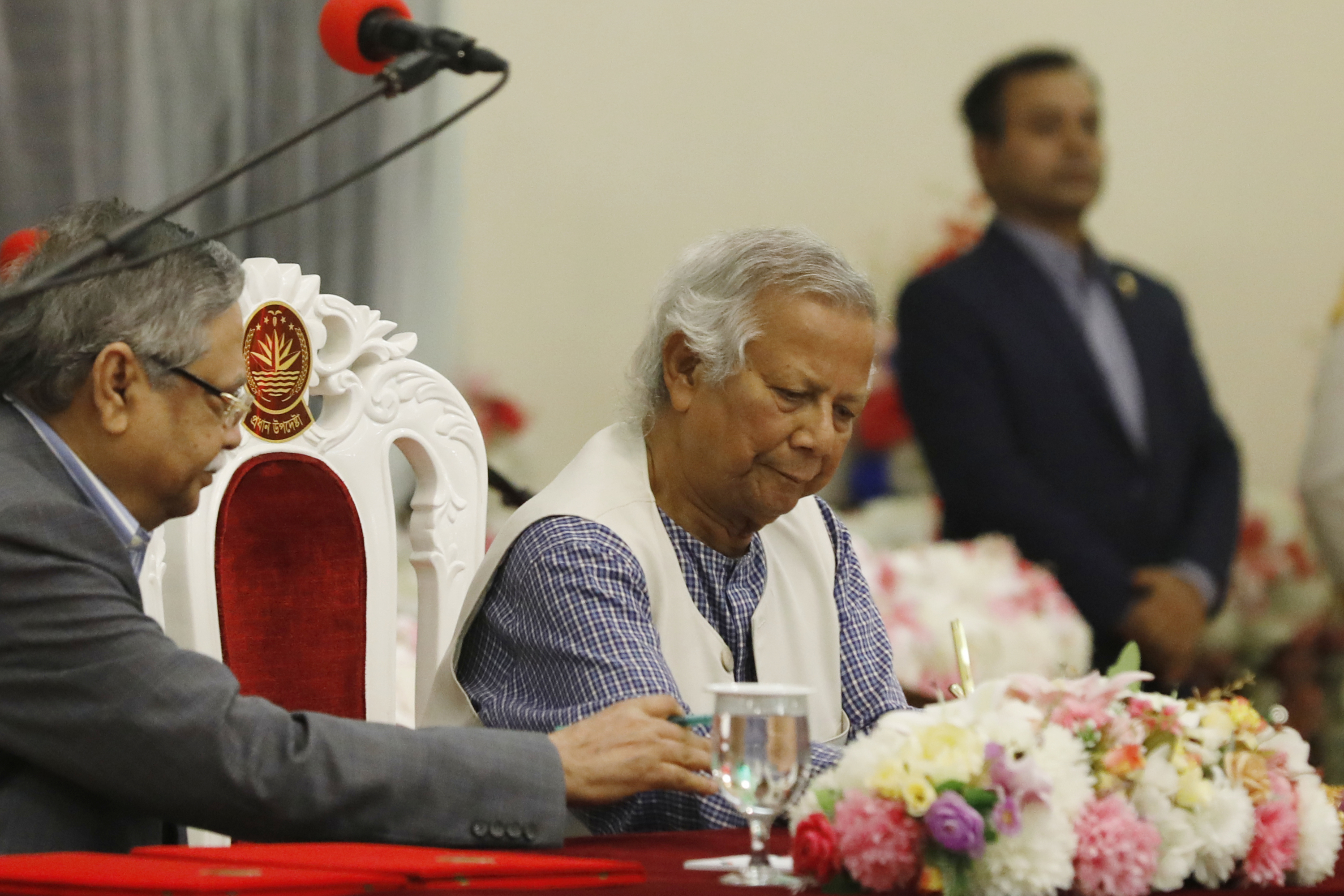It is not far-fetched to think that among the congratulations that Muhammad Yunus received this week from all corners of the world for his appointment as interim Prime Minister of Bangladesh, a very special one came from Spain: from Queen Sofía. The strong friendship she forged with the renowned banker to the poor is unique.
Among the few confidants that the Emeritus Queen has had throughout her life, one has been the Bangladeshi economist (Chittagong, 1940). Such was the admiration and mutual complicity that Doña Sofía publicly defended Yunus in a way that had international political implications, something truly extraordinary in the biography of the discreet wife of Juan Carlos I. But let's take it step by step.
Queen Sofía met Muhammad Yunus in Brussels in 1993. The economist, who had founded the Grameen Bank in the previous decade, through which he developed the microcredit project to lift people living in the poorest areas around the world out of poverty, went to the Belgian capital to receive the King Baudouin Prize for his work. During the lunch held in his honor at the Royal Palace by Queen Fabiola, he shared a table with Queen Sofía, who was amazed by the philanthropic initiative. She had already heard about microcredits a year earlier in Brussels, when she had participated in an international meeting on rural women organized by the Grameen Bank.
Queen Sofía asked Yunus to visit her at Zarzuela Palace, which he did two months later, to further discuss microcredits. Given the immense interest that the matter aroused in the Spanish sovereign, she traveled to Bangladesh for the first time in 1996, where she spent several days with the distinguished economist visiting countless villages and firsthand experiencing what microcredits were and the specific effects they had on the less fortunate.
Queen Sofía became a global ambassador for microcredits. It was one of the personal causes -aside from her institutional duties and obligations in Spain- that she put the most effort into, strengthening her friendship with Yunus more and more, of whom it is said that the Queen was completely taken with him -something that should not be interpreted in all its meanings-.
Felipe VI's mother, who became the honorary president of the Global Microcredit Summit, never missed any of these forums, which were held annually in different countries. She met with Yunus at least twice a year, and together they visited projects on almost all five continents. The then Queen consort always made time for him whenever he visited Spain, adjusting her schedule as needed. "I can say she is a good friend. We have a warm relationship. Although she is the Queen, of course. And that is noticeable," Yunus recounted about Queen Sofía to Vanity Fair.
The banker to the poor received the Prince of Asturias Award for Concord in 1998, and the Nobel Peace Prize in 2006. At the ceremony in Oslo, presided over by King Harald and Queen Sonja of Norway, Queen Sofía attended exceptionally as a friend of the awardee, another demonstration of the immense affection she felt for the economist.
But the days of roses gave way to thorny moments for Yunus. In 2011, amidst an intense campaign of discredit and persecution by the Bangladeshi government led by Sheikh Hasina -the politician who has just been forced to resign and go into exile due to the popular uprising against her-, a documentary aired on Norwegian television that went viral worldwide, questioning the benefits of microcredits and several researchers accusing Yunus of misappropriating millions of funds. Over the years, none of this was proven. But at the worst moment for Yunus's image, when many world leaders chose to remain reserved and discreet on the matter, Queen Sofía did not hesitate to publicly support him. In a way, she committed the Spanish Crown like never before to support her dear friend, who has never forgotten the support that the current Emeritus Queen and her family provided in their darkest hour.
Much has changed since then. And today, the banker to the poor is once again a respected figure internationally and has returned to his homeland, with the aura of a hero, to lead a provisional government that will pull Bangladesh out of its worst political crisis in decades.
